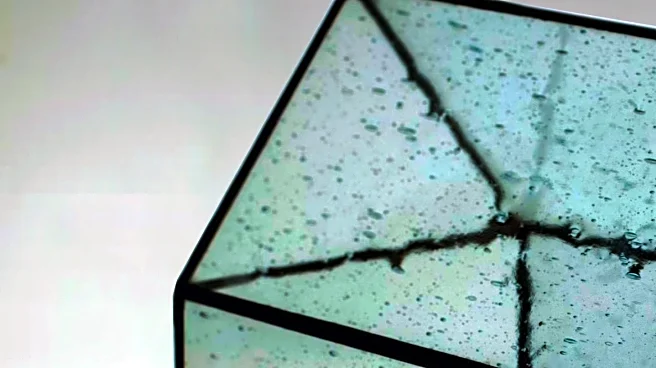What's Happening?
NPR's science podcast Short Wave has released an episode examining why people are drawn to haunted houses and the science behind the pursuit of fear. The episode features insights from neuroscientist Sarah
Tashjian and sociologist Margee Kerr, who explain how haunted houses provide immersive experiences that trigger arousal responses, such as increased heart rate and sweaty palms. These physiological reactions can be interpreted as fear or excitement, depending on the context. The discussion highlights how emotions are influenced by environmental factors and personal narratives.
Why It's Important?
Understanding the appeal of haunted houses sheds light on human psychology and the complex ways in which people experience and interpret fear. This exploration reveals how context and personal perception shape emotional responses, offering insights into broader human behavior. The findings have implications for entertainment industries that capitalize on fear, such as horror films and theme parks, by providing a scientific basis for designing experiences that evoke desired emotional reactions.
Beyond the Headlines
The study of fear responses in haunted houses contributes to a deeper understanding of human emotions and the role of context in shaping experiences. It challenges the notion of fear as a purely negative emotion, suggesting that it can also be a source of excitement and enjoyment. This perspective encourages a reevaluation of how fear is perceived and utilized in various cultural and entertainment contexts, highlighting the potential for fear-based experiences to foster personal growth and resilience.










